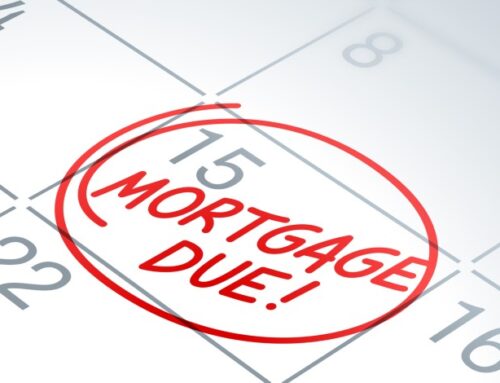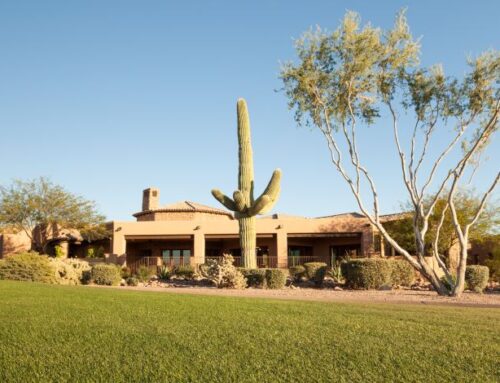Suppose closing day is on your horizon. Congratulations, you are one step closer to becoming a first-time homebuyer or a new homeowner in Arizona. You were able to battle through a highly competitive seller’s market currently in the Grand Canyon State, but don’t get too comfortable just yet. While it’s not common, it’s still possible for a deal to fall through during the closing process. According to the most recent National Association of REALTORS® (NAR) Confidence Index survey, 5% of home purchase contracts were terminated for various reasons, mainly relating to financing and appraisal issues.
Closing on a house in Arizona marks the beginning of a new chapter in your life. However, to successfully navigate the closing process, you must first understand what you need as the buyer. Keep reading to discover how you can nail the closing process to secure the home of your dreams.
What Is Closing And When Does It Happen?
The real estate process can be long and grueling, but once you’ve reached the closing process, especially in Arizona, it should be relatively smooth sailing. The closing process is the final step, and generally, the closing day is where you become the legal owner of the house.
During the negotiation phase, the buyer and the seller agree on a specific home sale transaction and closing date. The agreed-upon date must be included in the purchase agreement contract, and in the event of any changes to the closing date, it must also be agreed to in writing.
Since Arizona is an escrow closing state, the closing process typically begins between two and four days before the escrow date is scheduled to close.
Steps Required To Close On A Home In Arizona
Given that Arizona is an escrow state, the buyer must follow some oddities and specific procedures to secure the house successfully. For example, Arizona does not require an attorney review. Buyers and sellers generally have separate signing meetings. So, unlike other states, a formal sit down with the buyer, seller, attorney, agents and bankers may never happen. In Arizona, the buyer and seller may never meet in person.
Since the closing process is one of the most important aspects of buying a home, the following are some basic steps and materials you may need to become a homeowner in Arizona.
- Once the mortgage lender sends the buyer’s loan package to the escrow agent and the closing instructions to the title company, the closing date is scheduled.
- The escrow agent will then develop a statement detailing the transaction costs, and they’ll alert the buyer to any additional funds required to close the deal.
- An appointment will be scheduled for the buyer to sign all loan documents. According to the Arizona Residential Resale Purchase Contract, buyers must sign all documents no later than three days before the closing date.
- Once the documents are signed, they will be returned to the lender. The loan officer will review the documents. Once approved, the escrow agent will be notified to continue the process.
- Granted that no issues arise, the lender should fund the loan within 24 to 48 hours.
- Once the funds are deposited into the escrow account, they’ll be available to withdraw.
- The deed will be released, but the title company will still need to submit the deed to the county to be recorded.
- Once the county records the deed, escrow is closed.
- When the escrow agent gets confirmation the deed has been recorded, the buyer and seller will be notified.
- The buyer will receive the keys and be considered an Arizona homeowner.
How Much Are Closing Costs In Arizona?
Closing costs are fees and expenses that the buyer and seller must pay before officially concluding the transaction. Generally, the buyer will pay between 2% and 5% of the mortgage in closing costs. When purchasing a residential property in Arizona, various fees include:
- Loan origination and underwriting fees
- Home inspection and appraisal fees
- Escrow fees
- Credit report fees
- Arizona Title Company Fees
- Courier fees
According to research conducted by ClosingCorp, the average closing cost for a single-family residential home in Arizona was $4,190.34 in 2020.
Let’s look at how some of the fees may break down.
Loan Origination and Underwriting Fee
Lenders may charge the buyer to begin and process a loan application. The fee may vary depending on the lender you choose, but generally, the fee is based on a percentage of the house’s purchase price.
Home Inspection and Appraisal Fees
Although home inspections are not required when purchasing a home in Arizona, many homebuyers elect to go with a home inspection to decide whether or not to proceed forward with the sale. According to The Dwelling Inspector, a certified Arizona home inspector, the average home inspection for Phoenix is approximately $305. Homebuyers can expect to pay between $275 and $350.
Additionally, lenders may require you to get the house appraised to ensure they are not lending you more than the home’s values. A home appraisal can vary in price but generally can range between $450 and $800.
Escrow Fees in Arizona
Arizona requires a house to be held in escrow before the sale is complete. They keep the funds safe and distribute them once the transaction is complete. The escrow fees may vary depending on the company you choose. However, the fees are generally $2 for every $1,000 of the property’s sale price. Some escrow companies may provide a flat fee regardless of the price of the property.
Credit Report Fees
During your mortgage application, lenders may need you to pull your full credit report. Credit reports are generally around $25.
Arizona Title Company Fees
The lender may run a title search on the house to verify there are no property liens against it. Generally, these fees can range between $1,600 and $2,500.
Courier fees
Typically, lenders will use a courier service to send the documents needed to close a property. Frequently, they pass the cost over to the homebuyer. Courier fees may vary depending on the lender but shouldn’t cost more than $100.
Common Closing Problems That Cause Delays
The most recent National Association of REALTORS® Confidence Index survey found that 26% of closing deals in June of 2021 were delayed but ultimately came to an agreement. There are various reasons why deals might fall through at the last moment. Below are some of the most common closing problems that may cause delays or cause the deal not to happen.
- Appraisal issues: There is a chance that the appraisal may be lower than expected. Generally, a low appraisal can mean you may be paying more than the house’s actual value. In turn, your lender can’t approve a mortgage amount for more than the property’s appraised value.
- Financial problems: While some sellers may allow you to place an offer on their house without a preapproval letter, issues may arise if you submit an offer without being preapproved. The deal may be further delayed or fall through entirely if you ultimately cannot afford the house.
- Home inspection issues: Almost every time an inspector is called to look through a house, issues may turn up. Some problems may be bigger than others and cost the buyer too much money. Resulting in renegotiations, or the buyer may rescind the offer altogether.
- Walkthrough problems: During the final walkthrough of the house, the buyer may find something wrong. Resolving those issues can result in a delay in the closing date.
- Paperwork issues: On closing day, you’ll probably be asked to sign ≈100 pages of legal documents. It’s important to peruse the documents carefully to ensure the seller didn’t slip anything in at the last minute without your knowledge. If something is out of the ordinary, delays may occur.
Learn More About The Arizona Homebuying Process
The closing process is the final step before you can become an Arizona homebuyer. Understanding what goes into the process and what you need as a prospective homebuyer will make the process much smoother.
If you want to learn more about the home buying process, check out some of our recent blogs where we discuss important things you need to know before buying a home in Arizona and everything you need to know about the home loan process.
When you have secured your Arizona home and want to refinance your mortgage, consider Arizona Central Credit Union. We offer some of the best interest rates throughout the entire state. Contact Arizona Central Credit Union when you are ready to refinance.




